第51章
The infinite difference of the subjects, replied he, is a sufficient foundation for this difference in my conclusions. In works of art and contrivance, it is allowable to advance from the effect to the cause, and returning back from the cause, to form new inferences concerning the effect, and examine the alterations, which it has probably undergone, or may still undergo. But what is the foundation of this method of reasoning? Plainly this;that man is a being, whom we know by experience, whose motives and designs we are acquainted with, and whose projects and inclinations have a certain connexion and coherence, according to the laws which nature has established for the government of such a creature. When, therefore, we find, that any work has proceeded from the skill and industry of man; as we are otherwise acquainted with the nature of the animal, we can draw a hundred inferences concerning what may be expected from him; and these inferences will all be founded in experience and observation. But did we know man only from the single work or production which we examine, it were impossible for us to argue in this manner; because our knowledge of all the qualities, which we ascribe to him, being in that case derived from the production, it is impossible they could point to any thing farther, or be the foundation of any new inference. The print of a foot in the sand can only prove, when considered alone, that there was some figure adapted to it, by which it was produced: But the print of a human foot proves likewise, from our other experience, that there was probably another foot, which also left its impression, though effaced by time or other accidents. Here we mount from the effect to the cause; and descending again from the cause, infer alterations in the effect; but this is not a continuation of the same simple chain of reasoning. We comprehend in this case a hundred other experiences and observations, concerning the figure and members of that species of animal, without which this method of argument must be considered as fallacious and sophistical.
The case is not the same with our reasonings from the works of nature. The Deity is known to us only by his productions, and is a single being in the universe, not comprehended under any species or genus, from whose experienced attributes or qualities, we can, by analogy, infer any attribute or quality in him. As the universe shews wisdom and goodness, we infer wisdom and goodness. As it shews a particular degree of these perfections, we infer a particular degree of them, precisely adapted to the effect which we examine. But farther attributes or farther degrees of the same attributes, we can never be authorised to infer or suppose, by any rules of just reasoning. Now, without some such licence of supposition, it is impossible for us to argue from the cause, or infer any alteration in the effect, beyond what has immediately fallen under our observation.
Greater good produced by this Being must still prove a greater degree of goodness: A more impartial distribution of rewards and punishments must proceed from a greater regard to justice and equity. Every supposed addition to the works of nature makes an addition to the attributes of the Author of nature; and consequently, being entirely unsupported by any reason or argument, can never be admitted but as mere conjecture and hypothesis.[36]
The great source of our mistake in this subject, and of the unbounded licence of conjecture, which we indulge, is, that we tacitly consider ourselves, as in the place of the Supreme Being, and conclude, that he will, on every occasion, observe the same conduct, which we ourselves, in his situation, would have embraced as reasonable and eligible. But, besides that the ordinary course of nature may convince us, that almost everything is regulated by principles and maxims very different from ours; besides this, I say, it must evidently appear contrary to all rules of analogy to reason, from the intentions and projects of men, to those of a Being so different, and so much superior.